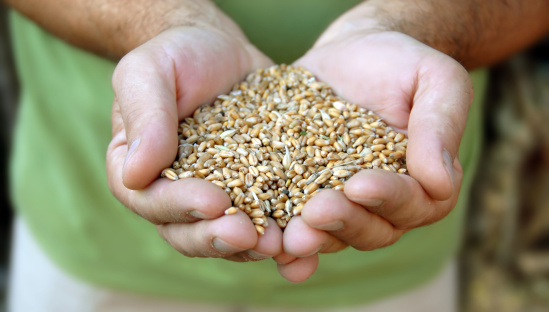Securing the future of food
One way of increasing food security is to use what we’ve got and protect it a bit better
With continual world population growth, the issue of food security is increasingly being brought to the table. Dr Peter Solomon from the Research School of Biology has cultivated a solution to a disease causing greater than $100million loss in the Australian wheat yield per year.
According to Solomon, there are two types of threats to crops: abiotic (namely, salinity, drought and frost) and biotic (stress caused by diseases, herbivores, insects). "The main disease of plants are fungi, by a mile," he says.
Solomon’s research looks at how fungus causes the disease Stagonospora nodorum in wheat. "This disease is the third most important wheat disease in Australia. Latest reports have it causing about $107million loss in yield each year. So it’s pretty serious," explains Solomon.
This particular fungus likes to feed off the dead and so, in a sinister chain of events, tricks the plant into suicide. In a startling discovery, Solomon found that it does this via some very effective molecules. "The effector proteins are these molecules that the fungus secretes. So when it just starts to get inside the leaf, it secretes the effector proteins and what these proteins do is interact with other wheat proteins and in doing so, essentially cause the wheat leaf to start killing itself."
Only on the rarest of occasions do scientists get to experience the direct management implications of their work; it is estimated that Solomon's solution is already saving the wheat industry $30million dollars a year. "We give these effector proteins to wheat breeders and they then take the proteins with a syringe and simply push them into the leaf of their breeding populations. If they see a big cell death response (or dead leaf), that plant's susceptible to the disease. So they can then remove that plant from their breeding populations," he explains.
"Somewhere in the realm of 500–650 million tons of wheat is produced globally per year and we're losing 20 per cent of that through disease. There's various ways of increasing food security, one is produce more of it, two is to use what we've got and protect it a bit better."

